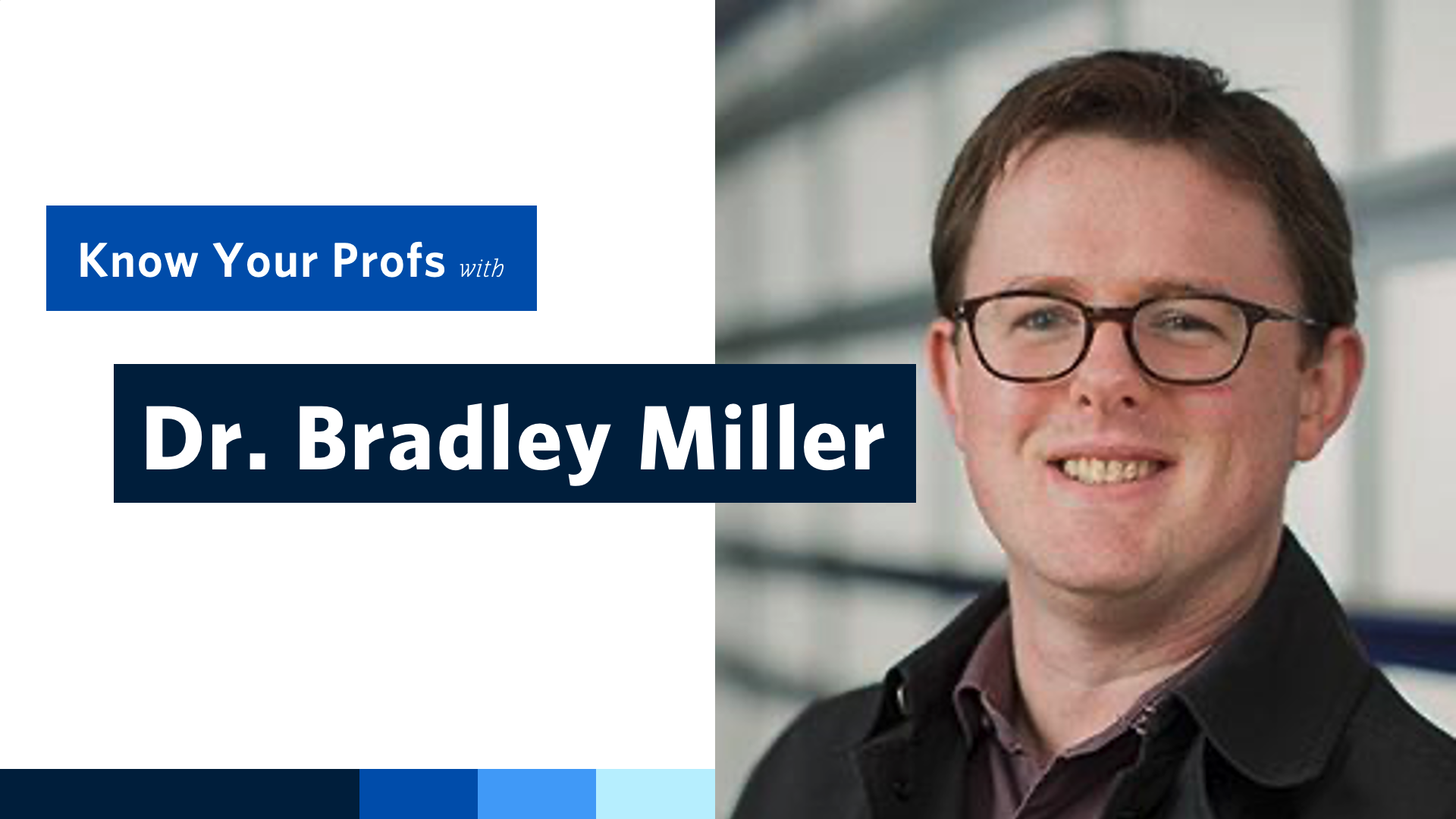

The Know Your Profs series is meant to help students learn what their professors are about in their own words. This series is for you if you’re thinking of taking a course taught by a professor you don’t know very well, if you’re an Honours student or graduate student looking for a thesis supervisor, or if you simply want to know more about your favourite professors in the Department of History.
In this instalment, Dr. Bradley Miller shares with us why he pursues collegial disagreement, what it takes to succeed in his classes, and how gaining work experience outside of academia sparked his life-long passion for the history of law.
What is your area of specialization?
Canadian history and the history of law.
What sparked your interest in your research area, and when did you know academia was for you?
After finishing my BA, I worked as a research assistant on a project about the history of the Department of Justice. It seemed dry at first. But once I got into the archives and saw for myself the real power of law as well as the way that so much about law was variable and subjective, I was hooked. I went on to work as a library assistant at a law school, mostly helping students find the books they needed. But as I listened to the students and professors discuss their important work in fields like international law, I knew that I wanted to do this, too. I started my MA the next fall.
Which courses do you teach?
This year I’m teaching HIST 414: Constitutions in Canadian history. This course covers constitutional history from the start of the British colonial period until the present. It examines federalism, settler-Indigenous relations, and constitutional rights in Canada. It means I not only have to learn what prime ministers and courts decided decades ago, but also what courts and human rights activists are working on right now as they use the Charter of Rights to change Canadian law.
I’m also teaching HIST 419: Crime and Punishment in Canadian History. This course examines a huge array of issues – from how Indigenous people became subject to Canadian law, to how the death penalty was implemented and then abolished, to why homosexuality was decriminalized, to how the Charter of Rights is continuing to reshape criminal justice right now. It’s exhilarating.
What do you like about teaching UBC students?
They’re incredibly bright. They ask hard questions. They make me dig deeper and work harder and learn more.
What can students expect from your classes?
Students can expect not just to read but also to criticize the work of scholars. They can expect to read primary source documents for themselves, and to make their own research contributions through their primary source essays.
Students who work hard, read carefully, and think critically, end up succeeding in my classes. They don’t need to know anything about the subject matter coming in.
What advice would you give your students?
A university education is an unparalleled opportunity. Take full advantage. Once you’ve taken the time to understand other peoples’ views, don’t be shy about disagreeing with them. Collegial disagreement is essential everywhere in society.
Talk to each other in class and disagree with each other’s ideas. And talk to your professors. Most professors love talking to students, even if we’re sometimes too awkward to show it.
If you weren’t a professor, what would you do with your life?
I’d probably be a lawyer with a constant desire to chuck it all and spend my life trout fishing.


